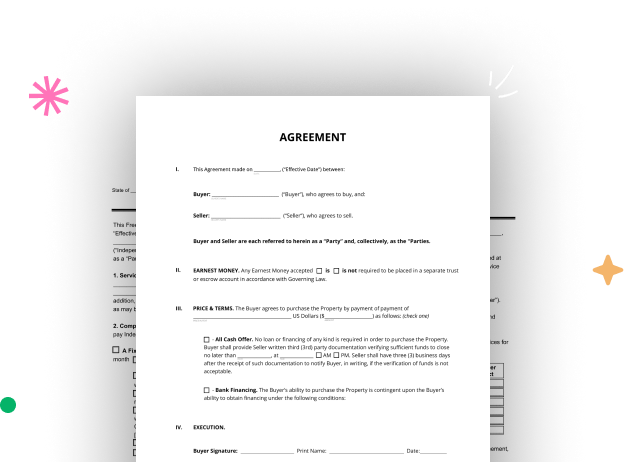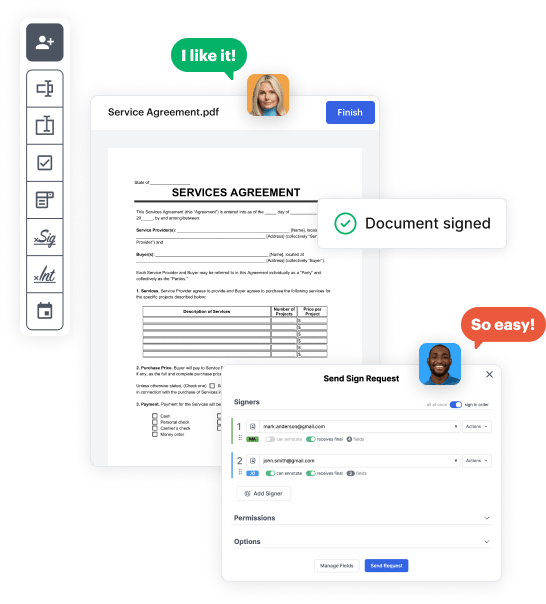

Navigate to the DocHub website and register for the free trial. This gives you access to every feature you’ll need to create your Vermont Estate Planning Document without any upfront cost.
Sign in to your DocHub account and proceed to the dashboard.
Click New Document in your dashboard, and choose Create Blank Document to create your Vermont Estate Planning Document from scratch.
Insert various fields such as text boxes, radio buttons, icons, signatures, etc. Arrange these fields to suit the layout of your document and assign them to recipients if needed.
Organize your document effortlessly by adding, repositioning, deleting, or combining pages with just a few clicks.
Turn your freshly crafted form into a template if you need to send multiple copies of the same document multiple times.
Send the form via email, distribute a public link, or even post it online if you wish to collect responses from more recipients.